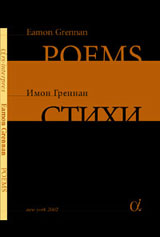
news /contact us / links
A Gentle Art
For my mother
I've been learning how to light
a fire
Again, after thirty years. Begin
(she'd say)
With a bed of yesterday's newspapers-
Disasters, weddings, births and
deaths,
All that everyday black and white
of
History is first to go up in smoke.
The sticks
Crosswise, holding in their dry
heads
Memories of detonating blossom,
leaf Saved
From the ashes of last night's
fire,
Arrange the cinders among the sticks.
Crown them with coal nuggets, handling
Such antiquity as behooves it,
For out of this darkness, light.
Look
It's a cold but comely thing
I've put together as my mother
showed me
Down to sweeping the fireplace
clean. Lit
You must cover from view, let it
concentrate-
Some things being better done in
secret.
Pretend another interest, but never
Let it slip your mind: know its
breathing,
Its gulps and little gasps, its
silence
And satisfied whispers, its lapping
air
At a certain moment you may be
sure (she'd say)
It's caught. Then simply leave
it be:
It's on its own now, leading its
mysterious
Hungry life, becoming more itself
by the minute,
Like a child grown up, growing
strange.
In the National Gallery, London
For Derek Mahon
These Dutchmen are in certain touch
With the world we walk on. Velvet
And solid as summer, their chestnut
cows
Repeat cloud contours, lie of the
land.
Everything gathers the light in
its fashion:
That boat's ribbed bulging, the
ripple
Of red tweed at the oarsman's shoulder,
The way wood displaces water, how
water
Sheens still, the colour of pale
irises
See how your eye enters this avenue
Of tall, green-tufted, spinal trees:
You tense to the knuckled ruts,
nod
To the blunted huntsman and his
dog,
A farmer tying vines, that discreet
couple
Caught in conversation at a barn's
brown angle.
You enter the fellowship of laundered
light.
From the ritual conducted around
this table
These men in black stare coolly
back at you,
Their business, a wine contract,
done with.
And on brightly polished ice, these
villagers
Are bound to one another by the
bleak
Intimacies of winter light – a
surface
Laid open like a book, where they
flock
Festive and desperate as birds
of passage
Between seasons, knowing that enclosing
sky
Like the back of their hands, at
home
In the cold, making no bones of
it.
End of Winter
I spent the morning my father died
Catching flies. They’d buzz and
hum
Against the warm illuminated pane
Of the living-room window. Breathless,
My hand would butterfly behind
them
And cup their fear in my fist,
Their filament wings tickling
The soft center of my palm. With
my
Left hand I unlatched the window
And opened my right wide in the
sunshine.
They’d spin for a second like stunned
Ballerinas, then off with them,
tiny
Hearts rattling like dice, recovered
From the freight of their lives.
I watch
Each one spiral the astonishing
Green world of grass, and drift
Between the gray branches of the
ash.
I see each quick dark shadow
Smudge the rinsed and springing
earth
That shone beyond belief all morning.
These must have been at least a
dozen
I saved like that with my own hands
Through the morning, when they
shook off sleep
In every corner of the living room.
House
Near the junction of two small roads
from where there’s a wide, eye-dazzling
panorama of the bay and the islands
that
shoulder out of it, I come across
the site
where someone’s sister’s second
cousin
has been putting up a place
for himself and his family, and
I can tell
from this half-built rectangled
shell
of bricks and mortar, from those
square vacancies where the windows
will be glassed in, and from the
blind holes
made for the doors, just what a
flimsy thing
a house is. Still, this one will
be
soon finished, roofed and weatherproofed
against the storms that’ll rattle
at
its fast hinges, strain to separate
stone
from stone, fling cracked roofslates
to the Atlantic, and roar and roar
and roar
to dislodge into raw air
the family that would make its
home
here, their lives hopefully opening
in this shelter, learning how to
live
with one another and on this windy
height –
a wired-in field of furze in front
and, at its back, the broad amazement
of the bay, the floating islands,
the almost hourly
tilt and shift of stony light,
or those
raving firelights when the sun
goes under.
At Work
On slow wings the marsh hawk is
patrolling
possibility — soaring, sliding
down almost to ground level,
twisting suddenly at something
in the marsh hay or dune grass,
their autumnal colours snagging
his eye
where he finds the slightest aberration,
any stir
that isn't the wind's, and abruptly
plunges on it.
Then, if he's lucky — and that
scuttling minutiae of skin and innards,
its hot pulse hammering, isn't
— he will settle there
and take in what's happened: severing
the head first,
then ripping the bright red strings
that keep the blood in check,
then eyes, gizzard, heart, and
so to the bones, cracking
and snapping each one — that moved
so swift and silent
and sure of itself, only a minute
ago, in the sheltering grass.

Translation into Russian
by E. Baevsky, V. Gandelsman,
A. Gritsman, I. Mashinski,
G. Starikovsky
“ARS-INTERPRES”, New York, 2002
Bilingual, 100 pages
Library of Congress Control Number:
2002101311 ISBN: 0-9718419-0-x